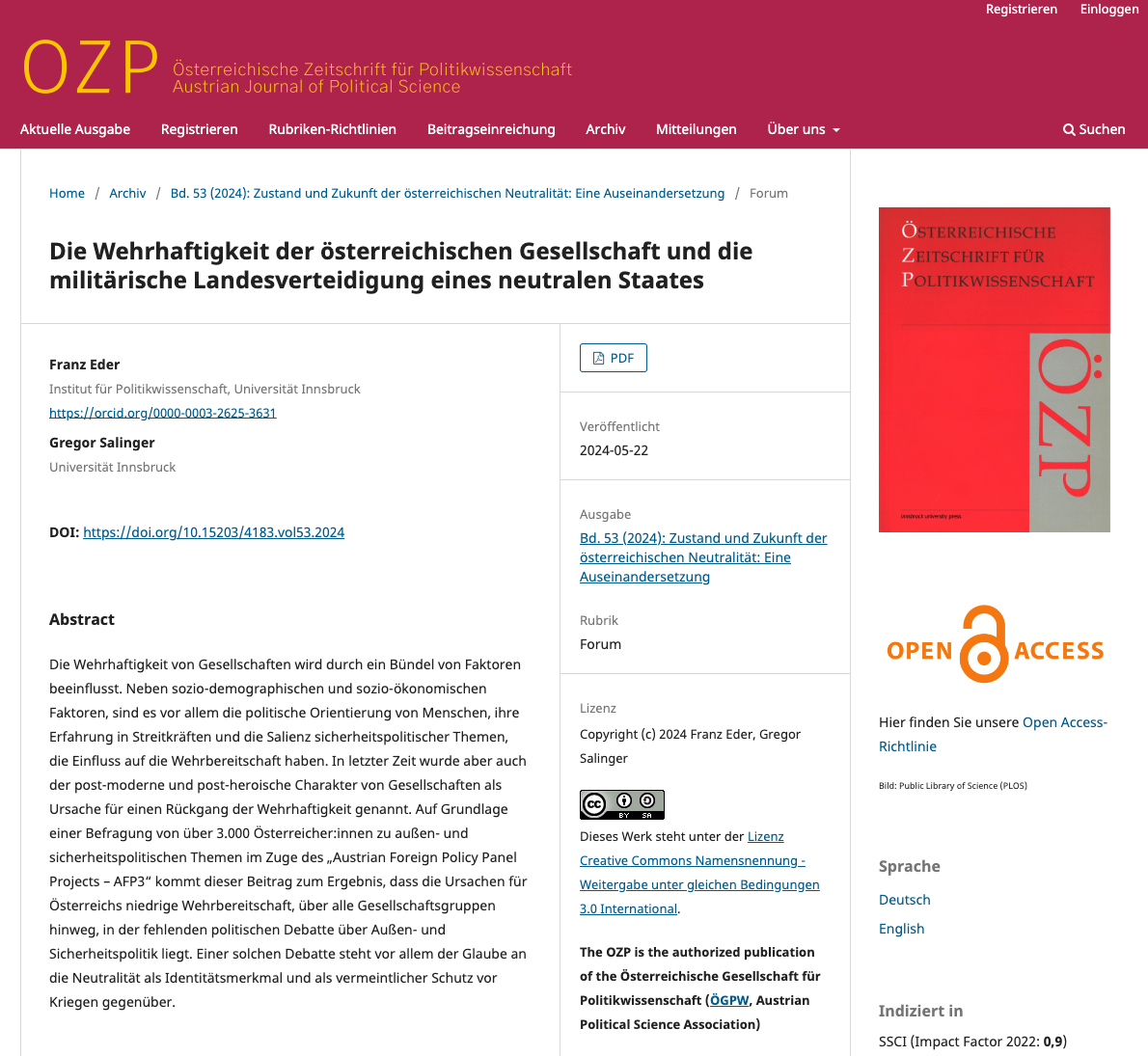A society’s willingness to fight (W2F) is influenced by a bundle of variables. In addition to socio-demographic and socio-economic factors, it is above all the political orientation of people, their experiences in the armed forces, and the salience of security policy issues that influence their willingness to fight. Recently, however, the post-modern and post-heroic character of societies has also been identified as a cause for a declining W2F. Based on a survey of more than 3,000 Austrians on foreign and security policy issues (conducted by members of the “Austrian Foreign Policy Panel Project – AFP3”), this article argues that the reason for Austria’s low willingness to fight, across all societal groups, is first and foremost the absence of a political debate on foreign and security policy. Such a debate is hindered primarily by the belief in neutrality as an anchor of identity and as an alleged shelter from wars.
Read more about this topic here: 10.15203/4183.vol53.2024
Also have a look at the AFP3 dataset on AUSSDA here: 10.11587/UJJWTG
